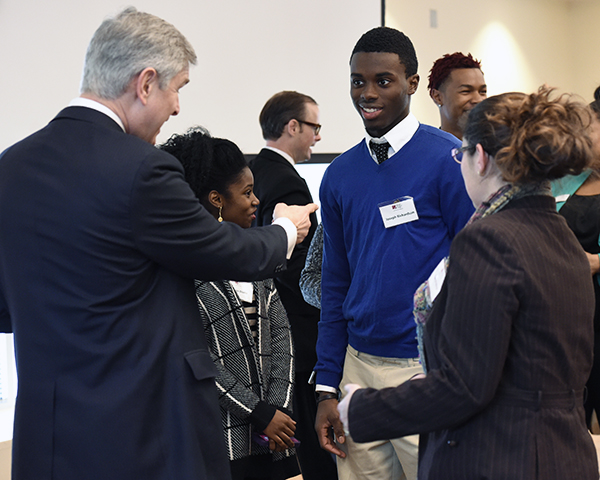
President Becker talks to students, including Joseph Richardson, center, during his visit to Georgia Perimeter's Clarkston Campus. (photo by Bill Roa)
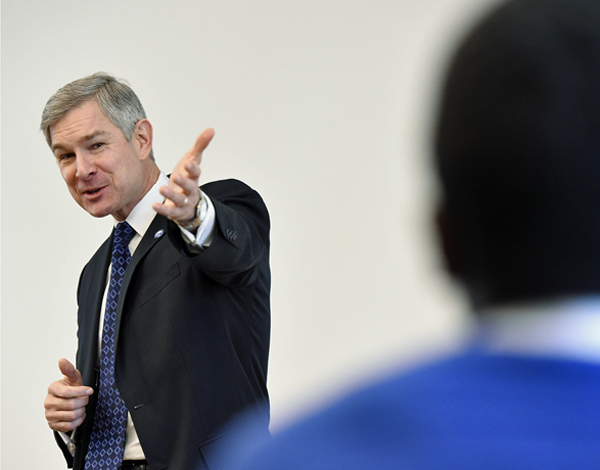
Dr. Mark Becker, president of Georgia State University—and of the future consolidated institution—answers a student’s question during his Feb. 24 visit to GPC’s Clarkston Campus. (photo by Bill Roa)
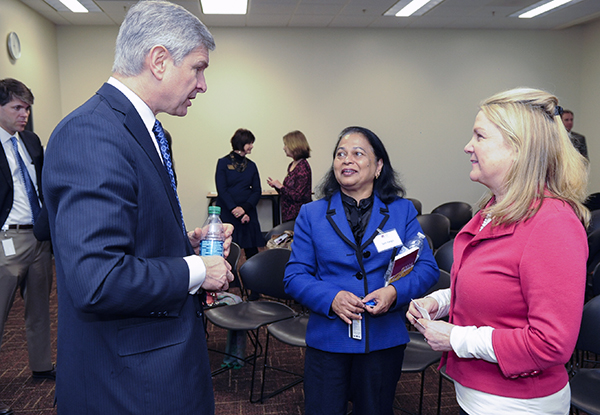
GPC history professor Dr. Salli Vargis, center, converses with Dr. Mark Becker and Shelley Nickel of the University System of Georgia at Newton Campus meeting. (photo by Bill Roa)
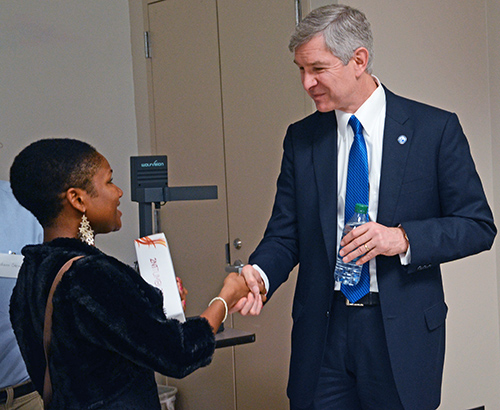
GPC student leader Juanita Barr greets Dr. Mark Becker at Georgia Perimeter's Alpharetta Campus. (photo by Leita Cowart)
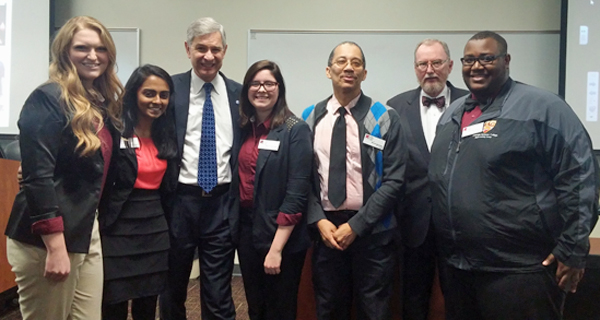
Pictured with Dr. Mark Becker, third from left, and Rob Watts, second from right, are Newton Campus student leaders, from left, Holly Tessmer, Sri Rajasekaran, Allison Lunsford, Michael Washington and Giovonta Logan.
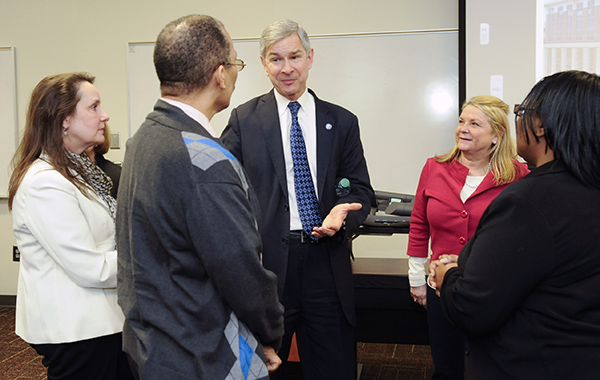
Newton Campus faculty and students meet Dr. Mark Becker and Shelley Nickel at their Feb. 24 visit. (photo by Bill Roa)
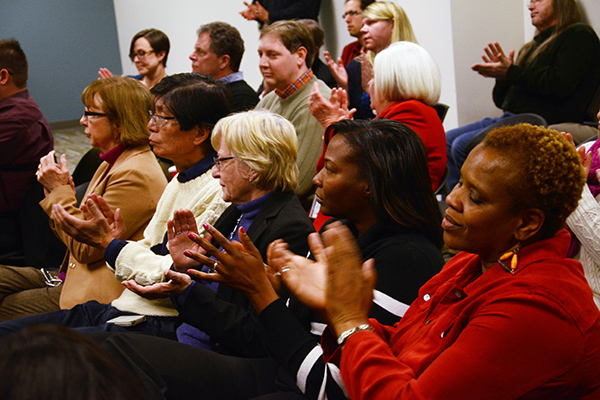
Dunwoody Campus employees cheer remarks by Dr. Mark Becker during the Georgia State president's Feb. 27 visit. (photo by Leita Cowart)
Georgia State president visits GPC, shares vision of consolidation
Georgia Perimeter College (GPC) is expected to become the 10th college under Georgia State University, and GPC students who meet requirements will be able to transfer seamlessly to Georgia State without reapplying.
Those were some of the points made by Georgia State’s president, Dr. Mark P. Becker, during his recent visits to Georgia Perimeter’s five campuses. At each visit, GPC academic and student service deans presented Becker with information about the campus. Following the presentations, Becker spoke and answered questions from students, faculty and staff.
Becker visited the Clarkston, Decatur and Newton campuses on Feb. 24. Accompanying him on some of the visits and adding remarks on behalf of University System of Georgia Chancellor Hank Huckaby was Shelley Nickel, USG’s vice chancellor for planning and implementation.
On Feb. 27, Becker visited the Dunwoody and Alpharetta campuses, where he listened to presentations not only from those campuses’ leaders but also from GPC’s online dean. Becker said GPC’s strong online presence creates a great opportunity for all Georgia State students wishing to take core classes online.
“I’m pretty excited about this,” he said. “I expect online to continue to grow.”
The GPC Alpharetta Campus, which is in a building formerly owned by Georgia State, represents the good relationship Georgia Perimeter and Georgia State already share, Becker said. He noted the North Fulton campus also offers rich opportunities for outreach with the business community.
There is an emerging agreement among leaders that Georgia Perimeter will become a college within Georgia State, Becker said. He anticipates that baccalaureate-seeking students will attend Georgia State’s downtown Atlanta campus, while associate-degree-seeking students will attend class on what are now GPC’s campuses. The online campus at GPC will become part of a larger university-wide platform for online education, he said.
Applicants who are denied admission to a baccalaureate program at Georgia State may receive a letter that grants them admission to the associate-degree track, with the guarantee that they will have a “spot” in a baccalaureate degree program upon successful completion of their associate degree.
He added that he envisions the consolidated institution having a “streamlined” application process for students who start at the associate-degree level and then want to move on to Georgia State for their bachelor’s degree.
The consolidation also may yield a seamless process for Georgia State baccalaureate students to take core courses at the GPC campuses. Transient students from Georgia State now must apply, have their request approved, then have their records sent back to Georgia State upon completion of a course at Georgia Perimeter. The creation of seamless processes will be tackled by faculty, staff and students serving on the more than 40 working groups.
“As you engage in this [consolidation] process, we will have a blending of cultures,” Becker said. “There will be some simple things—like combining manuals—and there will be some very hard things, like combining the Banner (data) systems.”
Combining the data systems of both institutions is essential by January 2016, he said.
“The initial success of this consolidation will be measured by whether students can enroll in classes, receive financial aid—and you [faculty and staff] get paid.”
President Becker said the only unacceptable answer to any “why” question during the consolidation process is: “Because this is how we’ve always done it.”
